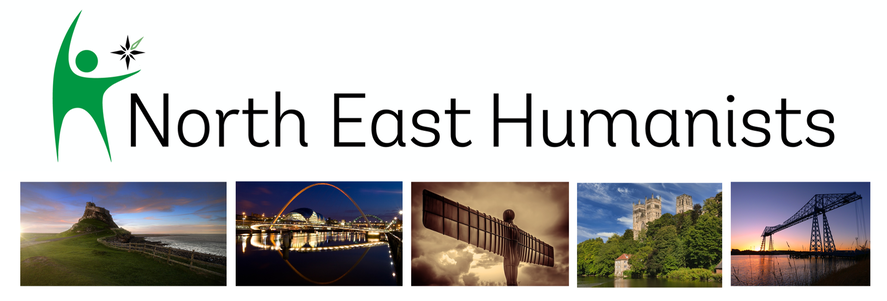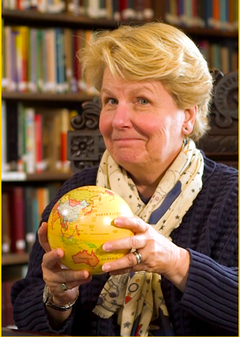Humanism

What is Humanism?
Humanism is an approach to life that has long been found across the world in many different cultures. Do you believe the following?
If so, then you might be a Humanist!
Humanist ideas and philosophies have been around pretty much since there were humans. From the beginning of recorded history, there have been people who believed that this life is all we have, and it is up to us to make the most of it, rather than waiting for any supernatural intervention to come along. There’s no governing body to proclaim one official definition of Humanism, but most go something like this:
"Humanism is a democratic and ethical life stance that affirms that human beings have the right and responsibility to give meaning and shape to their own lives. Humanism stands for the building of a more humane society through an ethics based on human and other natural values in a spirit of reason and free inquiry through human capabilities. Humanism is not theistic, and it does not accept supernatural views of reality." --Minimum Statement on Humanism from Humanist International, 1996
Humanism is an approach to life that has long been found across the world in many different cultures. Do you believe the following?
- You do not need a god to give your life purpose.
- Belief should be based on evidence.
- Morality should come from humanity not authority.
If so, then you might be a Humanist!
Humanist ideas and philosophies have been around pretty much since there were humans. From the beginning of recorded history, there have been people who believed that this life is all we have, and it is up to us to make the most of it, rather than waiting for any supernatural intervention to come along. There’s no governing body to proclaim one official definition of Humanism, but most go something like this:
"Humanism is a democratic and ethical life stance that affirms that human beings have the right and responsibility to give meaning and shape to their own lives. Humanism stands for the building of a more humane society through an ethics based on human and other natural values in a spirit of reason and free inquiry through human capabilities. Humanism is not theistic, and it does not accept supernatural views of reality." --Minimum Statement on Humanism from Humanist International, 1996

A Bit of History
Starting in the late 19th century, people who subscribed to this worldview began to form official groups to support one another and act for the betterment of society. This “ethical movement” (as it was called then) slowly evolved into the various Humanist organisations we see today at the local, national, and international levels. The United Kingdom was one of the earliest locations for this movement and Humanists UK can trace its origins back to 1896. Later, in 1952, they were one of the first five groups to start Humanists International (as it is known today). At our local level, secularism was active in the north of England since the 1860’s, but was officially organised in 1957 into what is today the North East Humanists. That makes NEH one of the oldest regional Humanist groups in the United Kingdom, and it is currently the largest such group too.
For far more on the rich history of Humanism in the UK, see Humanist Heritage, which was published in 2021 to celebrate 125 years of Humanists UK.
Starting in the late 19th century, people who subscribed to this worldview began to form official groups to support one another and act for the betterment of society. This “ethical movement” (as it was called then) slowly evolved into the various Humanist organisations we see today at the local, national, and international levels. The United Kingdom was one of the earliest locations for this movement and Humanists UK can trace its origins back to 1896. Later, in 1952, they were one of the first five groups to start Humanists International (as it is known today). At our local level, secularism was active in the north of England since the 1860’s, but was officially organised in 1957 into what is today the North East Humanists. That makes NEH one of the oldest regional Humanist groups in the United Kingdom, and it is currently the largest such group too.
For far more on the rich history of Humanism in the UK, see Humanist Heritage, which was published in 2021 to celebrate 125 years of Humanists UK.

What do North East Humanists say?
Humanists have no official dogma, sacred texts, or infallible leaders, and we aren’t required to believe the same things. However, Humanists generally share some very basic but important commitments. In 2021, the trustees of North East Humanists developed the following list of beliefs and values that currently represent what we are committed to.
1. We only live once so we want to make the best of our lives. As far as we can tell, our life here is the only one we will ever have. We are part of an evolutionary process on Earth where all life is related and shares the same genetic building blocks. We see no evidence that anything supernatural affects our existence. It is up to us to give our lives purpose and to make them the best that we can for ourselves and others.
2. Our behaviour is guided by reason and empathy with concern for the welfare of all people and the entire planet. Morality is the product of our experience as evolved social animals. It is developed using natural capacities such as reason and empathy. Humanists believe that the underlying principle governing morality is a desire for the flourishing of all life.
3. Our knowledge of the world comes from experience and is aided by the sciences and humanities. Humanists ask questions and seek evidence to support their beliefs about the world. Our theories become robust in this way but must change when new information and better arguments become available.
4. We support democratic participation, secularism, and human rights. Humanists are committed to a pluralist, secular society. Whilst generally respecting the right of people to have different beliefs, Humanists will challenge ideas and practices which threaten harm to others or undermine their human rights.
5. Conflicts of interest require negotiated resolution and cooperation. Disputes at all levels, from the personal to the international, should be resolved through reasoned argument and negotiation, rather than through the use of power. We cooperate with others to address problems and reduce pain and suffering in the world.
6. Creativity and physical expression are key parts of our humanity. Humanists recognise that art, sports, practical skills, socialising, and mutual support meet innate needs in human beings. These things make our lives enjoyable and worth living. We believe that everyone deserves to have opportunities to express and experience their unique array of interests and capabilities.
Humanists have no official dogma, sacred texts, or infallible leaders, and we aren’t required to believe the same things. However, Humanists generally share some very basic but important commitments. In 2021, the trustees of North East Humanists developed the following list of beliefs and values that currently represent what we are committed to.
1. We only live once so we want to make the best of our lives. As far as we can tell, our life here is the only one we will ever have. We are part of an evolutionary process on Earth where all life is related and shares the same genetic building blocks. We see no evidence that anything supernatural affects our existence. It is up to us to give our lives purpose and to make them the best that we can for ourselves and others.
2. Our behaviour is guided by reason and empathy with concern for the welfare of all people and the entire planet. Morality is the product of our experience as evolved social animals. It is developed using natural capacities such as reason and empathy. Humanists believe that the underlying principle governing morality is a desire for the flourishing of all life.
3. Our knowledge of the world comes from experience and is aided by the sciences and humanities. Humanists ask questions and seek evidence to support their beliefs about the world. Our theories become robust in this way but must change when new information and better arguments become available.
4. We support democratic participation, secularism, and human rights. Humanists are committed to a pluralist, secular society. Whilst generally respecting the right of people to have different beliefs, Humanists will challenge ideas and practices which threaten harm to others or undermine their human rights.
5. Conflicts of interest require negotiated resolution and cooperation. Disputes at all levels, from the personal to the international, should be resolved through reasoned argument and negotiation, rather than through the use of power. We cooperate with others to address problems and reduce pain and suffering in the world.
6. Creativity and physical expression are key parts of our humanity. Humanists recognise that art, sports, practical skills, socialising, and mutual support meet innate needs in human beings. These things make our lives enjoyable and worth living. We believe that everyone deserves to have opportunities to express and experience their unique array of interests and capabilities.

So, are you a Humanist?
Many people are Humanists without even knowing it. Humanists UK have developed a short 10-question quiz to help you find out how Humanism fits with you. Give it a try. It only takes a minute or two.
Humanists UK Quiz — How Humanist Are You?
Many people are Humanists without even knowing it. Humanists UK have developed a short 10-question quiz to help you find out how Humanism fits with you. Give it a try. It only takes a minute or two.
Humanists UK Quiz — How Humanist Are You?

Can I Watch Some Short Videos About This?
You sure can! Stephen Fry is a prominent patron of Humanists UK and he provided the narration for a short video series called, "that's humanism!" They cover four important Humanist topics that can be seen below.
You sure can! Stephen Fry is a prominent patron of Humanists UK and he provided the narration for a short video series called, "that's humanism!" They cover four important Humanist topics that can be seen below.
|
What makes something right or wrong? (3:03)
|
|
Free Online Courses About Humanism
For far more details, Humanists UK have developed two free online courses. Each course requires about 3 hours per week and has 6 weeks of material. One focuses on the nature of Humanism and its response to life’s big questions. The other centres around the people who describe themselves as Humanists and the way they live their lives. These are independent and can be taken in any order. See here for more details on both courses.
For far more details, Humanists UK have developed two free online courses. Each course requires about 3 hours per week and has 6 weeks of material. One focuses on the nature of Humanism and its response to life’s big questions. The other centres around the people who describe themselves as Humanists and the way they live their lives. These are independent and can be taken in any order. See here for more details on both courses.
Humanist Magazines

New Humanist
New Humanist is published by the Rationalist Association, a registered charity promoting rational inquiry and debate based on evidence rather than belief. This is a quarterly magazine of culture and science, published since 1885. New Humanist is for anyone who wants to understand the ideas, conflicts, and systems shaping our world — climate, capitalism, technology, fundamentalism, struggles for equality, and more.
New Humanist is published by the Rationalist Association, a registered charity promoting rational inquiry and debate based on evidence rather than belief. This is a quarterly magazine of culture and science, published since 1885. New Humanist is for anyone who wants to understand the ideas, conflicts, and systems shaping our world — climate, capitalism, technology, fundamentalism, struggles for equality, and more.

Humanistically Speaking
Humanistically Speaking is a free, monthly, online magazine that has been published since 2019 by members of the South Central England Humanist Network. See their website for full details and copies of all previous issues. (North East Humanists are now affiliated with Humanistically Speaking.)
Humanistically Speaking is a free, monthly, online magazine that has been published since 2019 by members of the South Central England Humanist Network. See their website for full details and copies of all previous issues. (North East Humanists are now affiliated with Humanistically Speaking.)
Humanist Books
Humanists UK maintains a comprehensive list of recommended books. They provide suggestions for books on Humanism, atheism, secularism, morality, Humanist essays, dialogue, education, philosophy, and science, There are also books for educators, children, and young adults, which include works of fiction and non-fiction aimed at a few different ages.
As you can see from the list above, Humanism touches many different topics. For very specific introductions to the Humanist movement, any of the following books will provide a good place to start.
As you can see from the list above, Humanism touches many different topics. For very specific introductions to the Humanist movement, any of the following books will provide a good place to start.
- Humanism: A Beginner’s Guide by Peter Cave
- The God Argument: The Case Against Religion and for Humanism by A C Grayling
- Humanist Anthology: From Confucius to David Attenborough edited by Margaret Knight & Jim Herrick
- Humanism: An Introduction by Jim Herrick
- Humanism: A Very Short Introduction by Stephen Law
- On Humanism by Richard Norman
- The Little Book of Humanism by Alice Roberts and Andrew Copson
Links
There are a wealth of resources about Humanism available on the web. Here are some useful links.
|
SPACE
|



